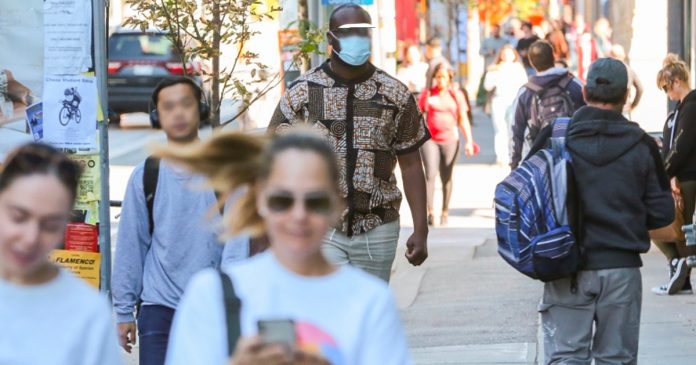By 2025, Gen Z will make up 27% of the workforce in advanced countries within the Organization for Economic Cooperation and Development (OECD), as well as one-third of the global population.
And, unless these now 24-year-olds or less find a way to either curb or cure their workplace angst, as in “too stressed to work”, it will be “devastating — economically, socially and much more.”
The instability, insecurity and relentless upheaval of the past several pandemic years has left workers anxious. And now, as layoffs proliferate, and pay fails to keep pace with rising inflation, they’re still worrying.
As reported by the BBC, according to Cigna International Health’s 2023 survey of almost 12,000 workers around the world, 91% of 18-to-24-year olds report being stressed out—compared to 84% on average.
This applies, as well, to the United States and Canada.
The global strain of what some call a “permacrisis” impacts workers of all ages, yet many researchers and experts believe that Gen Z are the most stressed cohort in the workplace overall.
Jumping into their careers in the past few years – with some only just entering the workforce during the pandemic – has put them in particularly difficult situations.
LinkedIn data from December 2022, shared with BBC, shows 18-to-25-year-olds to be the least confident out of all generations in their current job or role. Only 43% of Gen Z feel extremely confident – perfectly capable in every aspect of their role – compared to 59% of Gen Y (Millennials), Gen X and Boomers.
Additionally, in data from a 2022 global survey of more than 10,000 workers, conducted by the work-management platform Asana, Gen Z respondents said they were unable to switch off from work at a disproportionately higher rate than previous generations.
“I think that Gen Z is getting to see what Millennials dealt with when they graduated college during the Great Recession, which is very stressful and will add to their already heightened anxiety,” says Los Angeles-based Santor Nishizaki, an organisational leadership expert and author of Working with Gen Z: A Handbook to Recruit, Retain, and Reimagine the Future Workforce after Covid-19.
It has been cited that the fact that the youngest people in the workplace are struggling to keep their heads above water should alarm everyone.
In the short term, Gen Z’s stress is leading to ambivalence and withdrawal in their professional lives.
“We found that during the pandemic, a good portion of Gen Zers admitted to not giving a full effort at work, which is a symptom of burnout and other workplace behaviours, like disengagement, unclear communication, lack of manager support and loneliness,” says Nishizaki.
Taking the strain off the youngest workers, however, is a challenge for which there is no quick fix, say experts.
Whatever happens outside the office walls, leaders can begin by building what Nishizaki describes as a culture of purpose and impact.
“Gen Zers want to work for an organization that offers flexibility, a boss who is a coach and a mentor (rather than a technical expert), frequent communication and clarity on how their work creates a positive impact in the world,” he explains.
Easing Gen Z’s workplace burdens will be impossible without addressing their overall mental health too – which, like the economy, remains in permacrisis.
In the workplace, after a number of employees – specifically, knowledge workers – reaped the benefits of a more flexible approach to working, many employers are shifting course and demanding a full return-to-the-office. Economic instability still looms, and many companies are cutting thousands of jobs, or leaving employees worried that they’ll be next.
“In its essence, work is at a very uncertain time,” explains London-based Eliza Filby, a generational researcher, who advises companies on managing and recruiting people in their 20s.
“There’s horrendous stress about layoffs for everyone.”
Indeed, data indicates young workers are feeling ill-equipped within the workplace overall. LinkedIn data from December 2022, shared with the BBC, shows 18-to-25-year-olds to be the least confident out of all generations in their current job or role.
Only 43% of Gen Z feel extremely confident and perfectly capable in every aspect of their role, compared to 59% of Gen Y (Millennials), Gen X and the Boomers.
Until this changes within Gen Z, the future doesn’t look good.
